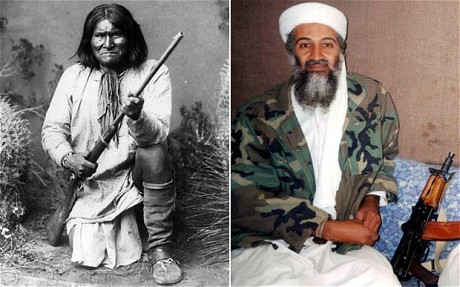By John Tirman
When the challenges from communism in Korea and Vietnam appeared, we called on these cultural tropes to understand the U.S. mission overseas. The same was true for Iraq and Afghanistan, with the news media and politicians frequently portraying Islamic terrorists as frontier savages. By framing each of these wars as a battle to civilize a lawless culture, we essentially typecast the local populations as the Indians of our North American conquest. As the foreign policy maven Robert D. Kaplan wrote on the Wall Street Journal op-ed page in 2004, “The red Indian metaphor is one with which a liberal policy nomenklatura may be uncomfortable, but Army and Marine field officers have embraced it because it captures perfectly the combat challenge of the early 21st century.”
Politicians tend to speak in broader terms, such as defending Western values, or simply refer to resistance fighters as terrorists, the 21st-century word for savages. Remember the military’s code name for the raid of Osama bin Laden’s compound? It was Geronimo.
The frontier myth is also steeped in racism, which is deeply embedded in American culture’s derogatory depictions of the enemy. Such belittling makes it all the easier to put these foreigners at risk of violence. President George W. Bush, to his credit, disavowed these wars as being against Islam, as has President Obama.


No comments:
Post a Comment